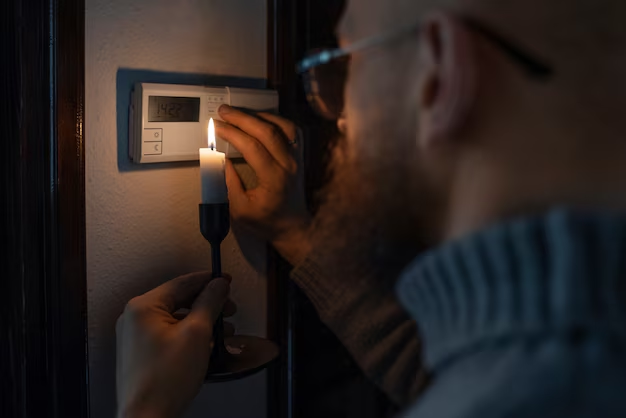Understanding Why Your Refrigerator Keeps Tripping the Breaker
Imagine waking up one morning to find that your refrigerator isn’t working because it has tripped the breaker again. Not only is this frustrating, but it can also lead to food spoilage and a potential fire hazard if left unaddressed. In this guide, we’ll explore the common reasons this occurs and how you can address each issue. Our ultimate goal is to empower you with the knowledge to take informed next steps and ensure the safe use of your appliances.
🤔 Common Causes of Breaker Trips in Refrigerators
If your refrigerator consistently trips the circuit breaker, it’s crucial to identify the root cause. Various factors might be contributing to this problem, including electrical faults, inadequate wiring, or appliance-specific issues. Below, we delve into the most prevalent causes:
1. Overloaded Circuit
One frequent cause of breaker trips is circuit overload. Many homes have a kitchen circuit sharing power with several high-use appliances, which can lead to overload.
Identifying Overloaded Circuits:
- Multiple Appliances: Check if other appliances are on the same circuit.
- Wattage Considerations: Calculate the total wattage of devices on the circuit to see if they exceed the circuit capacity.
2. Short Circuits
A short circuit in the refrigerator happens when a live wire touches another wire or grounded part, creating unintended paths for electricity.
Signs of a Short Circuit:
- Frequent Tripping: Persistent tripping, especially soon after resetting.
- Burning Smell: A smell of burning insulation can indicate wire exposure.
3. Ground Faults
Ground faults occur when electrical current strays outside its intended path, often due to moisture in the appliance or defects in wiring.
Indicators of Ground Faults:
- Moisture Presence: Inspect for leaks around the refrigerator.
- Frequent Breaker Trips: Like short circuits, ground faults can cause regular trips.
4. Faulty Components
Occasionally, internal faults within the refrigerator, such as a defective compressor or thermostat, may lead to breaker trips.
Diagnosing Faulty Components:
- Unusual Sounds: Listen for strange noises from within the refrigerator.
- Inconsistent Cooling: Observe fluctuating temperatures or failure to maintain coolness.
🛠️ Troubleshooting and Fixing the Problem
Having identified potential reasons, let’s explore how to handle these issues. The key is diagnosing without making assumptions about safety-critical components.
1. Checking the Circuit Breakers
Start by ensuring your breaker is functioning correctly. A faulty breaker can appear as if the circuit itself is problematic.
- Visual Inspection: Look for scorch marks on the breaker.
- Test the Breaker: Switch it off and on to see if it retains state without load.
2. Inspecting the Refrigerator Plug and Cord
Sometimes, the issue is as simple as a damaged power cord or plug.
- Examine for Damage: Look for frayed wires or burn marks.
- Replace if Necessary: If damage is found, replacing the cable or plug is often straightforward.
3. Reducing Circuit Load
To relieve an overloaded circuit:
- Distribute Load Evenly: Move non-essential appliances to different outlets.
- Consider Dedicated Circuits: For heavy appliances, a separate circuit might be necessary.
4. Addressing Short Circuits and Ground Faults
Addressing these issues involves a few pivotal steps:
- Professional Check: Hire an electrician to evaluate internal wiring in your refrigerator.
- Moisture Management: Mitigate any leaks or condensation inside the appliance.
5. Replacing Faulty Components
If internal faults are suspected, consider these actions:
- Consult the Manual: Before delving into repairs, check if your warranty covers component replacement.
- Professional Repair: Engage appliance repair services to ensure any major components are replaced correctly.
📋 Essential Tips for Refrigerator Safety
To ensure the longevity of your refrigerator and the safety of your home, adhere to the following best practices:
- Regular Maintenance: Schedule routine inspections to catch small problems before they escalate.
- Keep Vents Clear: A well-ventilated space around the refrigerator helps avoid overheating.
- Monitor Power Usage: Use power strips with overload protection to prevent energy surges.
🌟 Key Takeaways
Here's a quick summary with helpful tips to keep your refrigerator running smoothly without tripping the breaker:
- 🚦 Monitor Circuit Load: Balance your kitchen’s electrical load carefully.
- 🔍 Regular Inspections: Periodically check for cable wear and appliance performance issues.
- 🌧️ Manage Moisture: Prevent leaks and condensation within your appliance.
- 📞 Seek Professional Help: Don’t hesitate to contact a licensed professional if you suspect an internal fault.
Empowering the Reader
Dealing with a refrigerator that keeps tripping the breaker can be daunting, but understanding the potential causes and steps for resolution empowers you to manage the situation effectively. Always prioritize safety and, when in doubt, consult professionals to fix electrical and appliance issues safely. Remember, an efficient refrigerator not only conserves energy but also ensures your food remains fresh and safe for consumption. Keep these insights in mind, and you'll maintain a reliable and safe kitchen environment.

